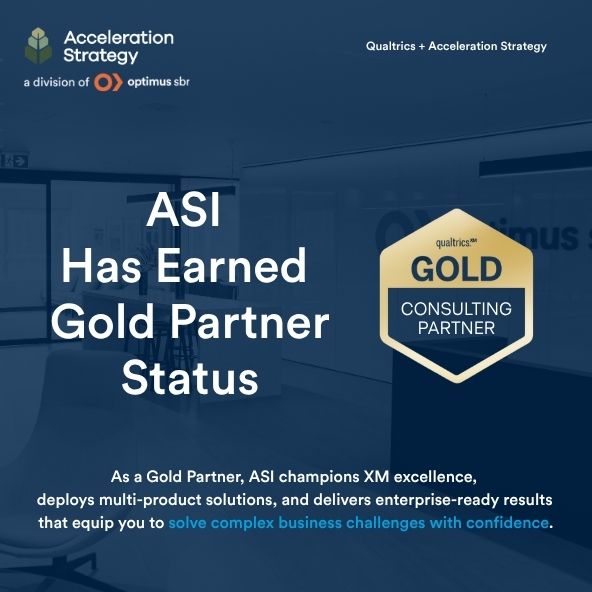Artificial Intelligence (AI) has gone from ‘nice to have’ to ‘make or break’ in the blink of an eye. It is no longer an option. Without it, you risk being outstripped by your competition at every turn. From data-fueled decision-making to seamless automation, AI powers new levels of efficiency and innovations that set winners apart. But here’s the real question: is your organization prepared to fully leverage AI? Our AI Readiness Assessment will pinpoint exactly where you stand today and deliver a clear roadmap to turn AI from potential to competitive edge.
Contact an AI Consultant to Take the AI Readiness Assessment Today
AI: The Competitive Imperative
AI is not just another tool- it’s a transformative force that allows businesses to:
- Automate repetitive tasks, which frees up employees so they can complete higher-value work
- Enhance decision-making with real-time data insights
- Improve customer experience with the use of chatbots and predictive personalization
- Drive innovation by noticing trends and opportunities faster than humans can
In Canada, the demand for intelligent automation and data-driven innovation is only increasing. All levels of government as well as private sector companies in many different industries are already translating AI into measurable savings, revenue lifts, and productivity boosts. Canadian businesses that don’t plan to adapt and modernize risk falling behind global competitors.
Below are just a few Canadian government and private sector organizations that are putting serious money behind AI:
1. Government of Canada: Budget 2021 renewed the Pan‑Canadian Artificial Intelligence Strategy with $443.8 million over 10 years, aimed at scaling research talent, providing dedicated computing power for national AI institutes, and accelerating commercialization across the country. (ISED Canada, Government of Canada)
2. City of Edmonton: In May 2025, the City of Edmonton launched a strategy developed by local experts to become a full-scale industrial hub that unites the city’s ever-increasing AI sector with its experienced construction and engineering industry to lead the world in the intersection of both. Next the group will aim to secure operating support from various levels of government. (Edmonton Sun)
3. Royal Bank of Canada (RBC): A four-year investment in advanced AI and machine learning produced AI‑powered digital assistant NOMI for improving consumers’ financial lives. NOMI has delivered more than 2 billion personalized insights and helped customers automatically set aside over $1.9 billion since launch. Average mobile‑app engagement time has doubled, boosting loyalty while lowering support costs. (The Financial Brand )
4. St. Michael’s Hospital (Toronto): CHARTWatch, an AI early warning platform, was developed to continuously scan electronic medical record data and alert staff when a patient’s condition is likely to deteriorate. The system cut unanticipated in-hospital deaths by 26 % without increasing false alarms, giving clinicians more time to intervene and improving patient outcomes. (unityhealth.to)
AI Investment Readiness: A Reality Check
Understanding why AI is a competitive imperative is only half the story. The next, and most decisive, step is determining whether your business should invest in AI. The answer is unequivocally yes: even organizations that aren’t ready to dive in immediately must still develop a deliberate, robust AI strategy and a step-by-step deployment roadmap before moving forward. You need clear answers to questions like:
Alignment: How closely does our AI ambition support our overarching business strategy?
Foundations: Do we have the governance structures and data foundations to implement AI responsibly?
Capability: Can our current technology stack and talent pool sustain a scalable, enterprise-wide AI rollout?
Before committing resources to new algorithms, hiring data scientists, or overhauling your infrastructure, it’s critical to gauge your organization’s AI readiness. By evaluating your preparedness now, you’ll avoid costly missteps, focus investment where it delivers the greatest impact, and build the confidence needed to lead in an AI-driven economy.
Assessing Your Readiness for AI: 5 Key Things to Consider
1. Purpose and Strategy
Does your organization have a clear, company-wide strategy for adopting AI? Is there a dedicated leader or team in place to drive AI strategy forward?
Having a clear purpose and strategy for AI is essential to achieving its full potential. Without a well-defined roadmap, AI initiatives risk becoming disjointed experiments rather than cohesive, impactful solutions. A clear purpose ensures that AI is not pursued for technology’s sake but as a tool to solve real business challenges, improve processes, and drive innovation. It creates alignment across the organization, guiding teams toward common goals and helping them prioritize where to invest their time and resources.
A strong AI strategy also sets expectations and accountability. It defines how AI will support the organization’s mission, the problems it aims to solve, and the metrics that will measure success. This clarity helps build trust and buy-in across teams, fostering a culture that embraces innovation and change. Teams that understand the value of AI are more likely to collaborate, adapt, and contribute to meaningful transformation.
When purpose and strategy are in place, AI becomes a catalyst for transformation, empowering teams to make data-driven decisions, streamline operations, and explore new opportunities. It ensures that AI efforts are integrated into the broader business strategy, making it easier to adapt to change, stay competitive, and ultimately, create long-term value for the organization.
2. AI Governance
How will your organization ensure that AI is used responsibly and in compliance with regulations? Are there clear guidelines in place to manage data privacy and accountability?
Establishing robust governance frameworks ensures that AI systems align with your company’s values, protect data privacy, and uphold accountability at every stage. Without governance, AI projects risk introducing bias, violating privacy laws, or causing unintended harm. These issues can lead to regulatory penalties, reputational damage, and loss of trust. Strong governance ensures transparency, fairness, and compliance, while aligning with both ethical principles and legal standards.
Governance also fosters stakeholder confidence and trust with customers, partners, and employees by demonstrating a commitment to responsible AI. By embedding governance into your AI strategy, you not only reduce risk but also gain a competitive edge, ensuring AI drives growth, not liabilities.
3. Data Quality
Is your organization’s data accurate, secure, and easy to access? Do your AI systems have the high-quality data they need to function effectively?
AI systems are only as effective as the data they rely on. Without clean, trustworthy data, even the most sophisticated AI models will stumble producing distorted, inaccurate, or even harmful results. Well-organized, accurate, and reliable data is essential for AI to generate reliable insights, predict trends, and support sound decision-making.
Data security underpins data quality. Without robust protection against corruption, unauthorized alteration, or loss, datasets become unreliable foundations for AI. By safeguarding integrity and preventing breaches, security measures ensure that data remains accurate, consistent, and complete. Moreover, strong security practices build regulatory compliance and reinforce stakeholder trust.
Accessibility matters too. When data is siloed, fragmented, or hard to find, AI projects stall. Teams need clear processes and tools to locate and use the right data effectively.
In short, high-quality, secure, and accessible data is the foundation for responsible, impactful AI that drives innovation, efficiency, and long-term business success.
4. Technology Analysis
Is your current technology setup ready to support AI integration?
Modern AI tools require far more than just basic hardware and software. They rely on secure networks, robust computing power, and the ability to process large datasets efficiently. Legacy systems often struggle to keep up with these demands, creating bottlenecks that slow down AI implementation and limit potential. It’s crucial to evaluate whether existing infrastructure, both hardware and software, can handle the performance and security requirements of AI solutions. In many cases, significant upgrades or even full system replacements may be necessary to enable seamless AI adoption.
Beyond immediate needs, it’s essential to consider scalability. As AI tools and models evolve, so will their computing and data requirements. A future-ready infrastructure should not only support current AI capabilities but also have the flexibility to expand as your organization’s AI maturity grows. Investing in scalable, secure, and efficient technology is key to AI’s long-term potential.
5. Talent
Do you have the in-house expertise needed to deploy and manage AI successfully? If not, are you prepared to hire new talent or collaborate with other partners to close the gap?
AI implementation is more than just a technical challenge; it demands a diverse blend of skills spanning data science, machine learning, software engineering, operations, project management, and leadership. Many organizations find they need to hire new talent, upskill existing teams, or collaborate with external partners to close capability gaps. It’s essential to assess your talent readiness. Do you have the right mix of people who can not only build and maintain AI systems but also understand how to integrate them into business processes, ensure ethical use, and drive adoption across teams?
Investing in the right people is essential to sustainable and effective AI implementation. Without the right expertise in place, even the most advanced AI tools will fail to deliver long-term value. Building a skilled, adaptable workforce is the foundation for any effective AI strategy.
A Final Thought
In an era where competitive advantage is measured in data points and milliseconds, the question isn’t whether to adopt AI, but how quickly to act. The benefits of AI are transformative: automated workflows, sharper decisions, richer customer experiences, and accelerated innovation. Assessing AI readiness across strategy, governance, data, technology, and talent will help your organization sharpen priorities, focus investment, and accelerate results. The insights you gain from an AI Readiness Assessment will ignite your journey to AI‑powered growth.
Take the AI Readiness Assessment
Take our brief AI Readiness Assessment to evaluate your capabilities across key dimensions like strategy, AI governance, data quality, technology analysis, and talent. In minutes, you’ll receive clear, customized guidance on where you stand and the next steps to move forward.
Contact an AI Consultant to Take the AI Readiness Assessment Today
Optimus SBR’s Technology Services Practice
Optimus SBR is an independently owned Canadian management consulting firm that works with organizations to get done what isn’t. Our dedicated Technology Services team helps organizations align technology with business objectives to drive innovation and efficiency through expert planning and transformative solutions.
Contact us to learn how we can help you accelerate the adoption of AI to drive smarter decisions, more efficient operations, and innovative solutions. Optimus SBR is ready to help your organization.
Doug Wilson, Senior Vice President and Technology & Data Practice Lead
Doug.Wilson@optimussbr.com





Industry Insights
Service Insights
Case Studies
Company News